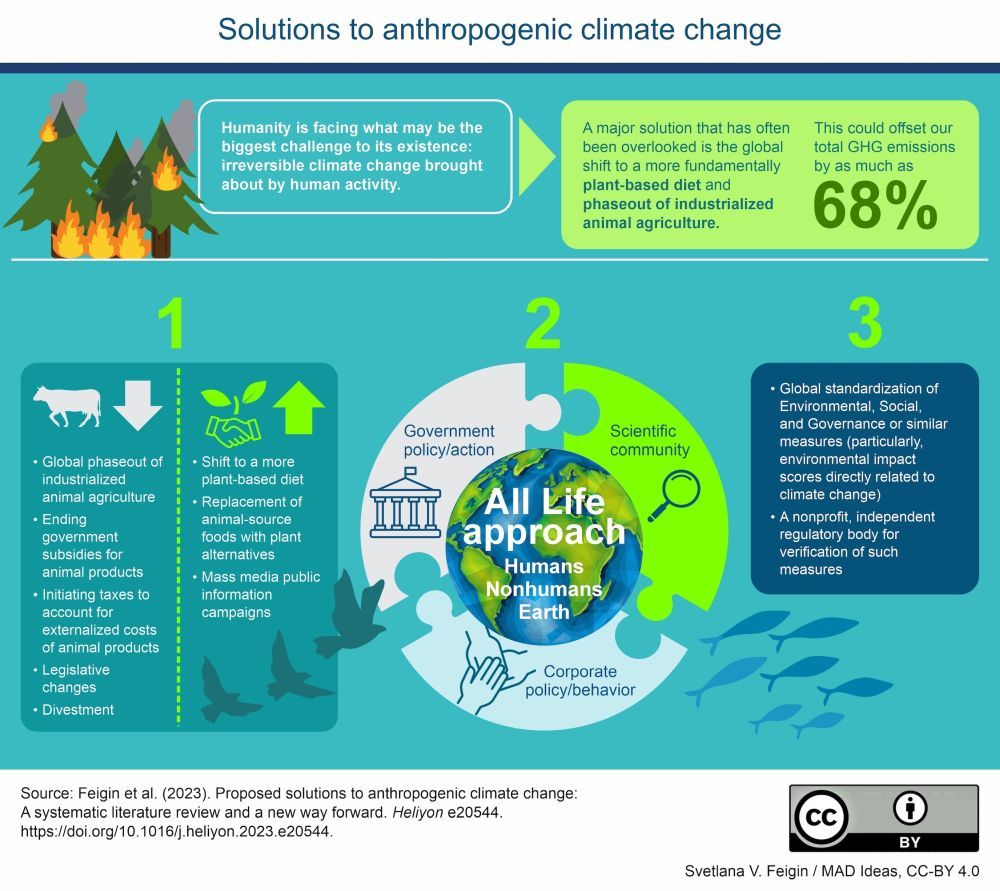In a major new study, prominent scientists from around the world have developed a new strategy for addressing climate change. The study “Proposed solutions to anthropogenic climate change: a systematic literature review and a new way forward,” published in leading scientific journal Heliyon, demonstrates that climate change solutions must include a shift to a more fundamentally plant-based diet and a global phaseout of industrialized animal farming. The authors also recommend the adoption of an “All Life” approach that recognizes the profound interconnectedness of all life on Earth and a global standardization of climate change metrics.

Our planet is in a state of emergency and we only have a short window of time (7-8 years) to enact meaningful change to prevent an eventual global climate crisis that will impact each and every one of the Earth’s inhabitants. To achieve this monumental task in such a short space of time, human activities cannot continue on a “business-as-usual” basis. And the data clearly indicate that we will not succeed without changes in the way that we eat and produce food.
“We must recognize that by solely focusing on reducing greenhouse gas emissions to limit global warming, we are treating the symptom of the cause, and the cause is major global unsustainability. To achieve long-lasting transformative change, which will benefit current and future generations (and save our planet), we need to change our mindset and behavior as individuals, communities, businesses, governments, and global citizens,” says lead author Svetlana V. Feigin, Ph.D.
“Animal agriculture is not necessary (nor sustainable) to feed the growing global population,” the authors contend. Regarding the phaseout of industrialized animal farming, the authors propose “ending government subsidies for animal-based meat, dairy and eggs, and initiating taxes on such products to account for the wide-ranging externalized costs that are currently passed on to taxpayers, governments, societies and future generations.” Other actions include “more stringent legislation on animal welfare standards and divestment in industrialized animal agriculture.”
Also in the study, the authors introduce and discuss the concept of an “All Life” approach. An “All Life” approach emphasizes the protection of the “oneness of life” (humans, animals, plants, the entire planet), and emphasizes that our health, and the health of our planet, are intimately intertwined with the health and wellbeing of all living beings. It emphasizes the interdependence and protection of all life forms and shifts away from a human-centric paradigm to an Earth-centric paradigm.
We are running out of time to alter our current trajectory, and thus to enact meaningful change that will have a profound impact upon the future wellbeing of the planet and all of its inhabitants. Failure to act will ultimately result in a scenario of irreversible climate change, with widespread famine and disease, global devastation, climate refugees, and warfare following resource scarcity.
Contact Information
Andrew Knight, Veterinary Professor of Animal Welfare, andrew.knight@winchester.ac.uk
Svetlana Feigin, Dr drsvetlanafeigin@gmail.com, (+64) 21 1368549 (New Zealand)
